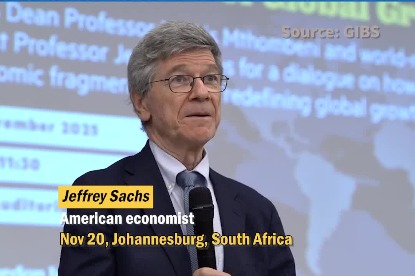Scourge of inflation felt around the globe


Though pain widespread, runaway prices spell hunger for most vulnerable
A telling anecdote about inflation's toll is that Walmart shoppers are opting for bottles of milk half the size of the ones they used to buy.
C. Douglas McMillon, chief executive of Walmart, said in a company earnings call on May 17 that "we see some switching from brands to private brands, and we see switching from gallons of milk to half gallons of milk".
The US Bureau of Labor Statistics reported that milk prices were 14.7 percent higher in April year over year for urban consumers; they were 13.3 percent higher year over year in March.
"Not all of (Walmart customers) can afford to absorb this, and they need our help," McMillon said. "Are we helping a family that's at the lower end of the income scale, be able to afford to feed their families during this inflationary time? And given that (pandemic) stimulus checks happened last year, there was some benefit to some of those folks that is eroding over time."
Walmart, the world's largest company by revenue, operates more than 10,000 department/grocery stores in 24 countries.
But US consumers, who are struggling with soaring gasoline and food prices and a shortage of baby formula, are not the only ones feeling the pressure.
Inflation has spread throughout the world, posing a threat to food security. Changes in interest rate policies in developed countries are also a challenge in developing countries, experts say.
In a meeting on global hunger at UN headquarters in New York on May 18, the organization's Secretary-General Antonio Guterres said the number of severely food insecure people had doubled in two years, from 135 million before the pandemic to 276 million today, with more than 500,000 experiencing famine conditions, an increase of more than 500 percent since 2016.
"These frightening figures are inextricably linked with conflict, as both cause and effect," he said. "If we do not feed people we feed conflict.
"If high fertilizer prices continue, today's crisis in grain and cooking oil could affect many other foods including rice, impacting billions of people in Asia and the Americas," Guterres said.
"But let's be clear: there is no effective solution to the food crisis without reintegrating Ukraine's food production, as well as the food and fertilizer produced by Russia and Belarus, into world markets, despite the war.
"The food crisis has no respect for borders, and no country can overcome it alone."
A UN measure of world food prices has risen more than 70 percent since mid-2020 and is near a record after the Russian-Ukraine conflict disrupted exports and supply chains, Bloomberg reported.
"Lower-income households in the UK and the US are struggling to feed themselves," Sonia Akter, an assistant professor specializing in agriculture at the Lee Kuan Yew School of Public Policy at the National University of Singapore, told bloomberg.com. Rising prices "will disproportionately affect poor people who spend a large share of their income on food", she said.
And because of concerns about their own food supplies, countries are not exporting as much as they did.
"Protectionism will definitely continue in 2022 and rise in the coming months, exacerbating food security risks for the world's most vulnerable," Akter said.
David Adamson, a senior lecturer at the Centre for Global Food and Resources at the University of Adelaide, told Bloomberg that protectionism is "the worst thing to do for food security because it prevents the markets from working to smooth things out".
Sky News published a survey showing that 27 percent of respondents in Britain aged 16 to 75 said they "skipped meals" in April. Sixty-five percent said they sought to cut costs by not turning on the heat in their homes.
Research cited by the UK Labour Party found that 250,000 families will be sent into total poverty over the next year. Inflation is at a 30-year high in Britain.
Martin Lewis, a financial expert, warned last month that unless people were fed and able to keep warm, there would be "civil unrest", the World Socialist Web Site reported.
"The government needs to get a handle on it… and they need to stop people making choices of whether they feed themselves or feed their children. And we are in that now. We used to have a relative poverty condition in this country, and we are moving to absolute poverty, and we cannot allow that to happen."
Lewis said: "(The) public mood is desperate, it's angry and … if we don't sort this, when those (energy) bill-rises come in the middle of October to £2,600 ($3,300) in the middle of winter, I worry about civil unrest."
Ireland's Finance Minister Paschal Donohoe said after heading a meeting of eurozone treasury chiefs on May 23: "High prices and disruption to food supplies are rippling across the world with very serious consequences for the most vulnerable in our societies."
Contributing to inflation in the US is a strong job market with rising wages.
"Amid historically low unemployment and record job openings, nearly 70 percent of CEOs are combating a tight labor market by increasing wages across the board," said Roger W. Ferguson Jr, vice-chairman of The Business Council and trustee of The Conference Board, in a report on May 18.
"On top of that, companies are grappling with higher input costs, which 54 percent of CEOs said they are passing along to their customers. This may contribute to cooling in consumer spending heading into the summer."
































